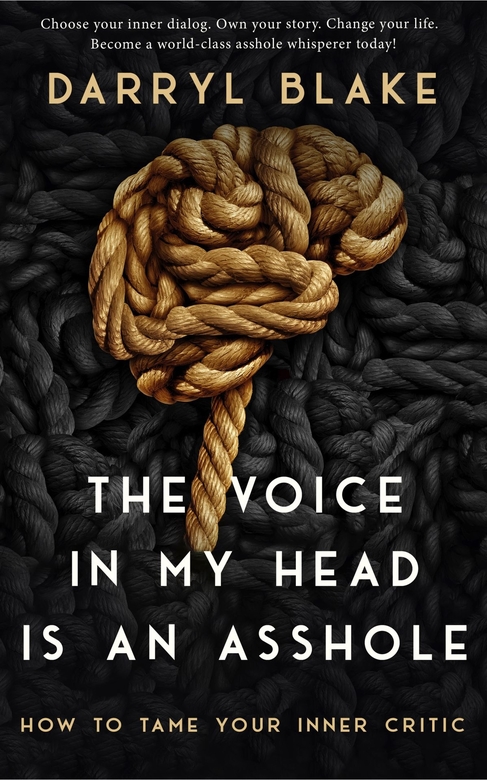Author Darryl Blake offers raw words of wisdom on our lifelong inner conversation in The Voice in My Head is an Asshole: How to Tame Your Inner Critic. Utilizing personal anecdotes along with research in the realm of psychology and neuroscience, this tongue-in-cheek guru delivers a matter-of-fact masterclass on mastering your own mind.
The title of this book may come off as aggressive, but it reflects the dangerous and widespread condition of negative self-talk and a lack of self-love in the modern world. Current events seem to be perennially overwhelming, and after two years of a pandemic, increasing climate change catastrophes and geopolitical instability, humanity’s mental health is taking a beating. In layman’s terms, the book delves into evolutionary psychology, impactful cultural traditions, instincts we often overlook, and proper mindset management.
Addressing the problem of self-criticism in accessible and simple terms, Blake takes readers through easy-to-understand examples that explain where our fears, doubts, and habits originate, and how they are perpetuated throughout our lives. Beyond science and brain chemistry, the book touches on linguistic history, conflict resolution, self-deception, master narratives, and coping mechanisms, among much more.
Unlike other self-help books, which may feel directed towards people struggling with a particular issue, the concept of an inner critic is relevant for everyone. When we face a new task, take a risk, produce something for others, seek validation, or encounter a disappointment, the way we deal with and discuss that situation speaks volumes about our character and sense of self-worth. The inner dialogue that we carry on with ourselves every day has a serious impact on self-image, and subsequently how we move through the world. By understanding why these particular voices exist, where they come from, and in which ways they don’t necessarily serve us, this book can help to shape future behavior and boost self-awareness.
The author undoubtedly has a sharp tongue and appreciates some good wordplay and whimsy, but the informality of the prose can undercut the seriousness of what he is trying to say. Some of the chapter titles also verge on being too self-aware or punchline-seeking, given the book’s focus. Considering the at-times heavy subject matters of self-harm, suicide, depression, self-loathing, and others, a final editorial sweep for general sensitivity may have been warranted. There is definitely space for lightheartedness and levity with these topics, but triggering subjects should be taken into consideration in relation to tone.
Additionally, each anecdotal story that begins a chapter feels doesn’t always feel fully aligned to the point of what follows, making the narrative structure occasionally feel formulaic. Certain examples are a bit simplistic, or feel like a stretch, which runs somewhat counter to the tough truths the book is trying to convey. Some superficial proofreading errors could also be caught by a final editorial pass, but the writing is generally polished and neatly referenced.
These issues aside, Blake has penned a slow-burn revelation of personal psychology and self-improvement that every internal conversationalist would benefit from reading. Regardless of the title, this is a clever, accessible, and, most importantly, helpful resource for lasting self-improvement.
Book Links
STAR RATING
Design
Content
Editing
Get an Editorial Review | Get Amazon Sales & Reviews | Get Edited | Get Beta Readers | Enter the SPR Book Awards | Other Marketing Services
























Leave A Comment